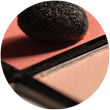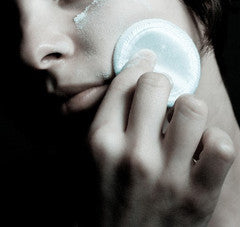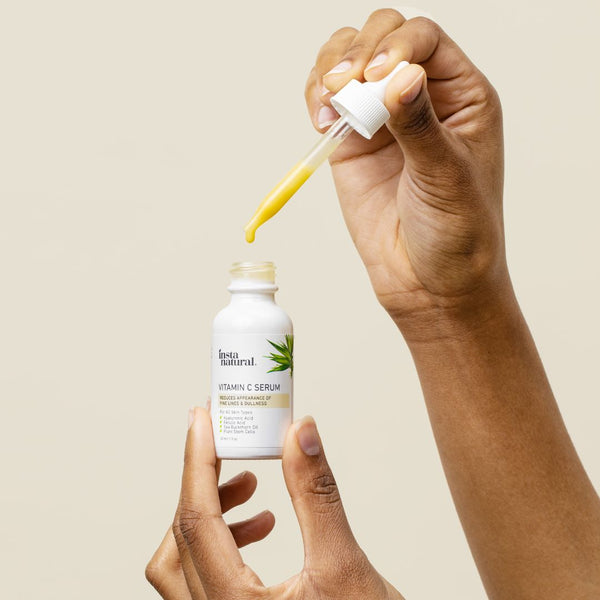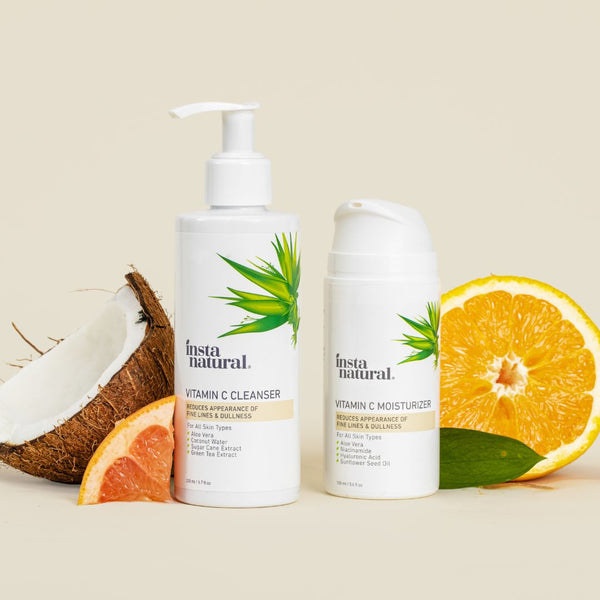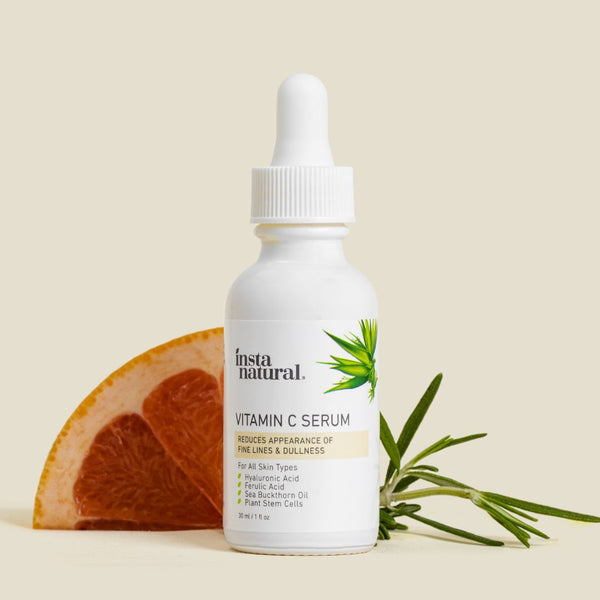
A great skin care regimen gives your skin that sought-after healthy glow, while also reducing signs of aging and keeping your breakouts to a bare minimum. Unfortunately, misunderstandings of how to use skin care products and what to do to keep the skin healthy often leads even the most diligent people to make skin care mistakes. While these mistakes can cause damage to your skin, the good news is you can fix the problems first by understanding what not to do, then by re-imagining your routine to engage only the best practices.
Going to Bed Wearing Makeup
One of the worst things you can do for your skin is failing to remove your makeup before going to bed.
It may not seem like a terrible thing to do every so often when you're really tired, but the consequences can actually become quite severe if you make this behavior into a habit. You'll find drier skin, deeper lines, and extremely clogged pores if you sleep in your makeup too often.
The reason your skin gets dry and red when you sleep in your makeup is that the makeup layer actually locks in irritants and bacteria and locks out moisture. So, you spend all night with the worst things on your skin while it slowly dries out.
Your pores will also get clogged more easily, which can make them appear larger. The worst part? Your skin loses elasticity due to a combination of these factors, which means you look older and your pores may actually sag and appear slightly larger.
Cleanse your skin every night, and make sure to remove all of your makeup. Find the right product for your skin and spend that extra five minutes making sure the surface of your face is clean. Don't forget to apply your favorite moisturizer when you're done. You'll see the difference in the morning.
Forgetting Sunscreen
Did you know that you can get sun damage even when you're indoors? Unless your home or office building has special windows, UV rays filter through the glass and damage your skin all day long. The same goes for winter and cloudy days. Just because you're not baking on the beach doesn't mean you don't need sunscreen. Plus, the damage never goes away. When your tan fades, your cells still bear the consequences of too much sun exposure.
Many, if not most, of the visible signs of aging are actually due to sun damage. You can use all the anti-aging serums you want, but if you aren't using SPF 30 on your skin every day, those anti-aging products can only do so much for you. If that isn't reason enough, skin cancer is seriously scary business. Don't think you're less likely to get skin cancer because you've got darker skin, either. Skin cancer can occur in any skin type.
Furthermore, you may already be using sunscreen, but you're probably not using enough. If your moisturizer or foundation contains sunscreen, it won't protect you the way you need it to. You have to use roughly a shot glass (1 to 1.5 ounces) of sunscreen just to adequately cover your face. Chances are you're not using that much foundation. Even if you use bottled sunscreen, are you really using enough to fill a shot glass? It might seem like a lot, but adding adequate SPF, not just to your face but to your neck, chest, and hands, should be part of your daily morning routine.
Product Overuse
When it comes to skin care, you absolutely can have too much of a good thing. A product can work wonders when used as directed, but can cause breakouts and dryness if you overuse it. Moisturizer, for example, can clog your pores when overused, which causes breakouts and blackheads. You may want to use a lot because you want to keep your skin supple and young, but resist the impulse. A droplet about the size of a nickel is enough for your entire face.
The same goes for cleansers. The ingredients in cleansers are powerful, and are calibrated to remove dirt and oil from your skin with a small application. Using too much can actually cause your skin to dry out or become irritated. For those with oily skin, dry skin typically causes more oil production, which may tempt you to use even more cleanser to remove the oil.
Another issue is using too many products, especially if they're from different skin care lines. For one thing, the number of ingredients you're putting on your face can be ineffective and extremely damaging. Instead of enhancing your skin's natural processes, you're probably sending it into repair mode. Also, your skin can only absorb so much at a time, and that amount is very small. Make sure you're giving it the vitamins and oils it needs, not just a bunch of filler product. Keep your routine basic, and stick to the directions when it comes to applying products.
Using Dirty Makeup Brushes
Think about how dirty your makeup brushes get. Sometimes the powder is so caked on, that it actually changes the color and texture of the bristles. That's not just powder, but dead skin cells and bacteria that you're dipping back into your makeup and then brushing all over your face. You may be following a great skin care regimen, but you might be causing breakouts every time you use your makeup brushes.
Don't use dirty brushes. Instead, clean them once every two weeks or so. If that seems like a lot, think about how often you change your towels and sheets. Washing them isn't difficult. Dish detergent, baby soap, or unscented soap mixed with warm water will do fine unless it's really caked on. Then, you might need to add some olive oil to the bristles before you start. Make sure only to get the bristles wet, not the brush itself, and don't wash them so hard that you alter the shape. Dry them flat on a towel, and you'll have clean brushes to apply your makeup with.
Picking at and Popping Pimples
How tempting is it to pop those nasty little white heads that sometimes appear even on the smoothest skin? Everyone is guilty of it, but popping those zits and picking at the spot later is one of the worst things you can do for your skin. First, popping a zit releases bacteria all over the surrounding skin, which could infect more pores and cause a breakout. Second, you may cause a pock mark or a scar, especially if you use your fingers or fingernails.
Though the dermatologist or the esthetician may sometimes pop your pimples during a facial, unless you have the tools and understand how to sterilize them properly, you should refrain from popping them yourself. Your fingernails may have microscopic contaminates underneath them, even if your hands are clean. You may also tear your skin by trying to manually pop a zit. The same goes for picking at rough patches or blackheads: just don't do it.
If you're prone to blackheads, you may want to invest in a blackhead remover. These can be safely used at home, but only under certain conditions. You have to understand how to properly clean and use the tool, and you need to be able to identify blackheads. Not all pores that look clogged actually are. Just pressing on your skin with a blackhead extractor without the proper technique and understanding is almost as bad as using your fingernails.
Failing to Read Ingredients
You may know skin care industry buzzwords and a few token ingredients to avoid, and that's a great place to start when understanding what's in the skin care products in your medicine cabinet. However, when faced with so many skin care options, you can't rely on advertisements or packaging to tell you what's really in the bottles. Many products use fillers, which means the ingredients you really need are barely there at all. While you don't need 100 percent concentration for most ingredients that help your skin, you do want the rest of the product to be helpful, too.
Skin care products with a lot of vitamins and antioxidants are what you should be looking for. When possible, look for organic and natural ingredients. If your skin needs a particular oil or vitamin that's safe to use in 100 percent concentration, like Argan oil, then just buy that rather than a product which fills the bottle with a bunch of other ingredients. Ultimately, you'll never be able to tell what truly makes a difference with your skin if you don't actually know what you're putting on it.
Exfoliating Too Much
Exfoliating is great for removing grime and dead skin from your face, and gently loosening the debris inside your pores. Adding exfoliating into your skin care regimen correctly produces healthy, glowing skin. However, if you do it too much, you'll actually cause the opposite to happen: your skin will become irritated and react badly. You may actually make yourself look older while impeding your skin's ability to conduct the natural processes that keep it healthy.
When you're over-exfoliating, your skin won't react quietly. You'll experience redness, sensitivity, dry patches, flaking skin, tightness, or even a burning sensation. Once this happens, you need to give your skin a chance to heal, reexamine how often you were exfoliating, and figure out what you were using. When you do exfoliate, use a gentle product without a lot of chemicals in it. Always exfoliate in a circular motion, never pressing hard and never in a scrubbing movement.
Ultimately, you should exfoliate to give your skin a little boost, not to treat any significant problems. Pervasive skin problems may have an environmental, dietary, or genetic component that exfoliating alone cannot solve. The temporary glow of exfoliation may tempt you into doing it more than necessary, but resist the impulse. If your skin reacts badly no matter how infrequently you exfoliate, drop it from your skin care regime.
Not Taking Care of Your Body
 Yoga is amazing for the body and for the skin. The deep breathing brings oxygen into your system, which is healthy for your skin, while the stretching and meditation reduce stress. Take a look at the forehead of someone who's spent a lifetime frowning, and you'll understand why stress reduction is so important for healthy skin.
Yoga is amazing for the body and for the skin. The deep breathing brings oxygen into your system, which is healthy for your skin, while the stretching and meditation reduce stress. Take a look at the forehead of someone who's spent a lifetime frowning, and you'll understand why stress reduction is so important for healthy skin.
You don't have to cut your cardio (the extra blood pumping also brings oxygen to your skin), but add in lifting every so often, too. Muscles hold more water than fat does, and water is essential to skin with a youthful appearance.You may know how to avoid sugars and greasy foods, but taking care of your body as a way to smooth out your skin is more involved than that. You have to follow a healthy diet and exercise regimen, and certain foods and exercises will do more for your skin than others. Don't forget to drink plenty of water, either.
Avoid processed foods as much as you can, and make sure you're getting a balance of vitamins and nutrients. Protein, for example, is essential to collagen production, but you want to avoid protein sources that have antibiotics or chemicals in them. Always go for organic meats and veggies. You also want to find foods high in antioxidants, which can help with sun damage by removing free radicals from your body. The key is balance: you don't want too much or too little of any healthful food group. Just nix sugars and processed foods, and if dairy seems to be a problem, nix that too.
If you notice you've been making any of these mistakes, it's time to make a change. Whether you forget to wear sunscreen or haven't been paying attention to what's in your products, be diligent with your skin care routine and see the benefits every morning when you look in the mirror. Take care of your skin. After all, it's the only skin you have, and it needs to last you a lifetime.
Image via Flickr by LaVladina, avrene
